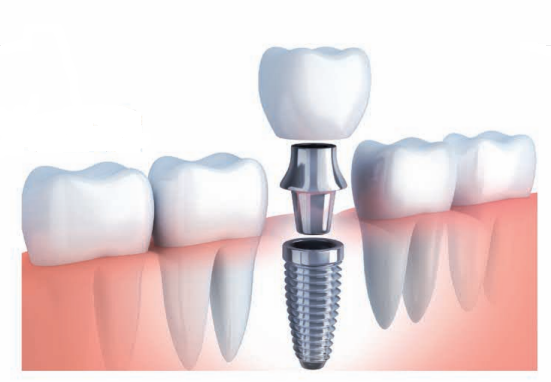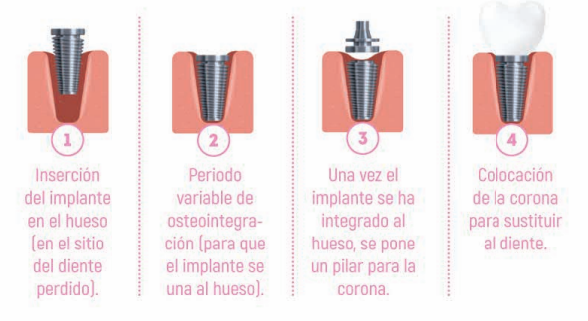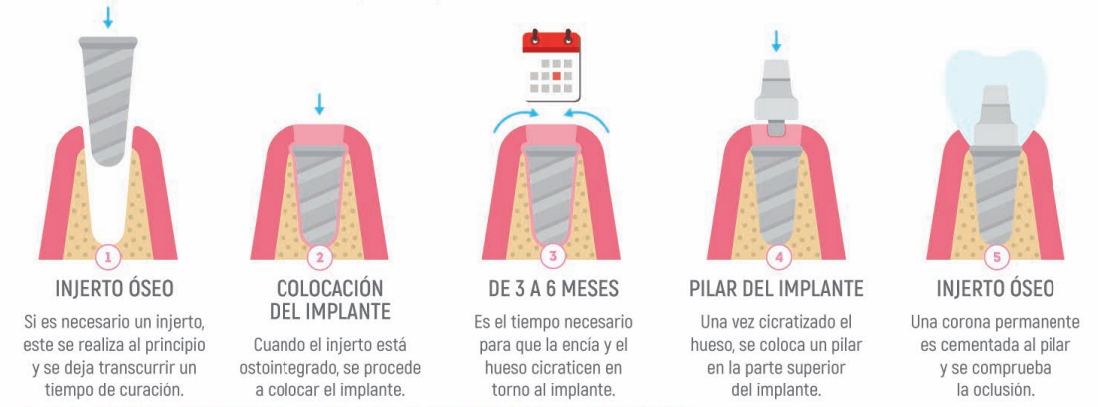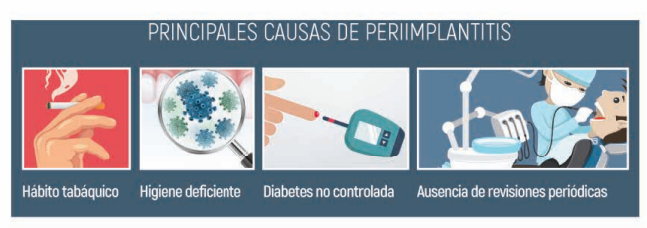Implants
Oral implantology is the area of dentistry that deals with dental rehabilitation due to tooth loss, with the main objective of recovering the aesthetics and functionality of the oral cavity.
Dental implants are placed in bone tissue with the intention of replacing missing teeth. Most dental implants are made of titanium or zirconium, as they are biocompatible materials that physically and chemically bond to the bone during the osseointegration process and are also strong and durable. It is very important that after placement the care of the relevant dental implants is taken.

What are dental implants?
Increasingly, the technique of implants has been acquiring great importance when it comes to replacing missing teeth. The implant is an artificial structure that is placed in the bone of the maxilla or jaw to replace the root of a missing tooth. Currently, the two most used materials for the manufacture of dental implants are titanium (metallic material similar to steel, but extremely hard, and zirconium (ceramic material, white and very resistant. Both types of materials are biocompatible). and the choice of one or the other corresponds to the dentist, depending, among other factors, on the place where the implant is going to be placed.

HOW DO THEY WEAR?
Before placing the implant, the dentist makes an evaluation of the bone where it needs to go. After studying several parameters, the treatment begins, which consists of 4 phases: implant placement, waiting time for the implant to integrate with the bone, placement of the screw for the crown and, finally, crown to replace the lost tooth.

Special cases
Although the most common implant placement technique is the one that has been discussed, there are special cases in which it varies. An alternative that is not always viable is the placement of the implant immediately after tooth extraction. This allows the patient to leave the consultation with a provisional crown that will be exchanged for the definitive one after the healing time. In other cases, after evaluating the bone where the implant should be placed, the dentist may consider it necessary to perform a bone graft beforehand.

Implants for life?
Just like natural teeth, implants can fail and often do for the same reasons. Inadequate dental hygiene, smoking and lack of regular check-ups are factors that put the survival of the implant at risk.
Certain pathologies such as uncontrolled diabetes can also contribute to its failure.
The main cause of failure is called peri-implantitis, which is the equivalent of periodontitis in the natural tooth and consists of a loss of the bone that surrounds the tooth.

